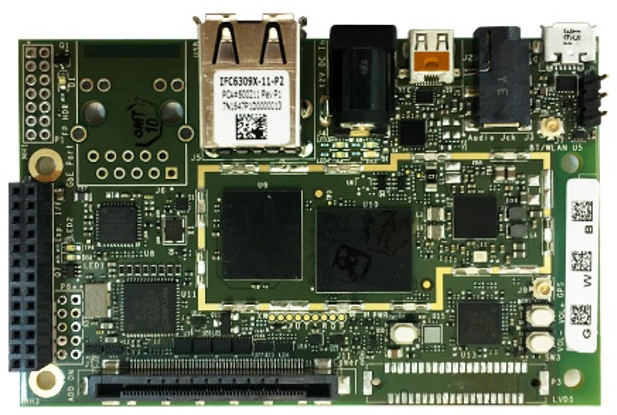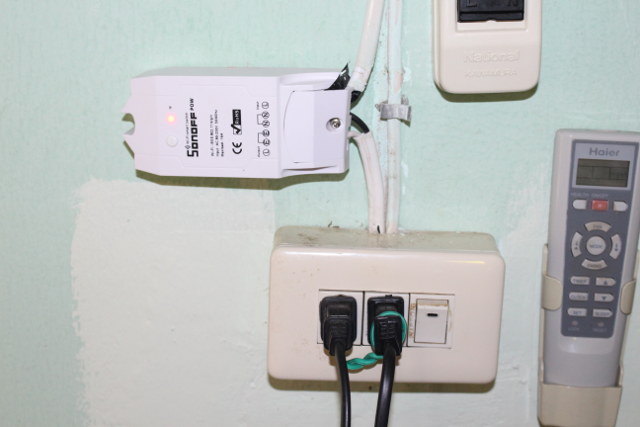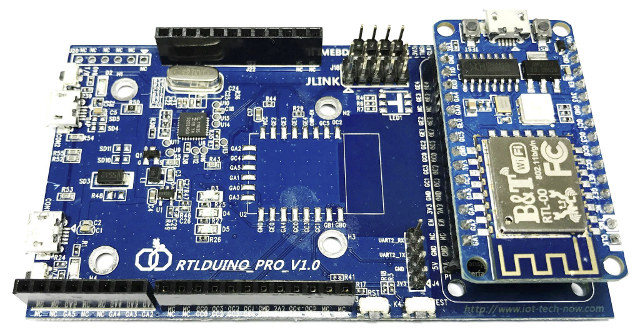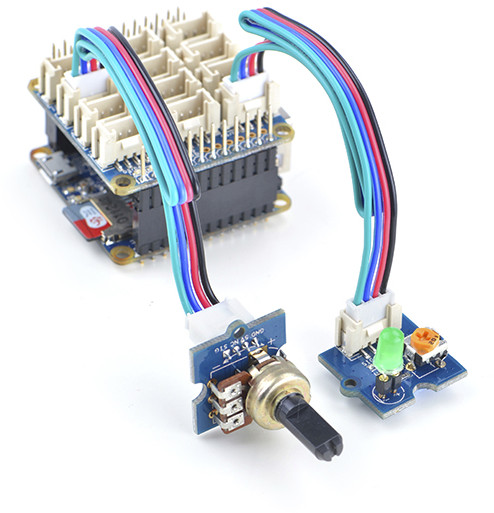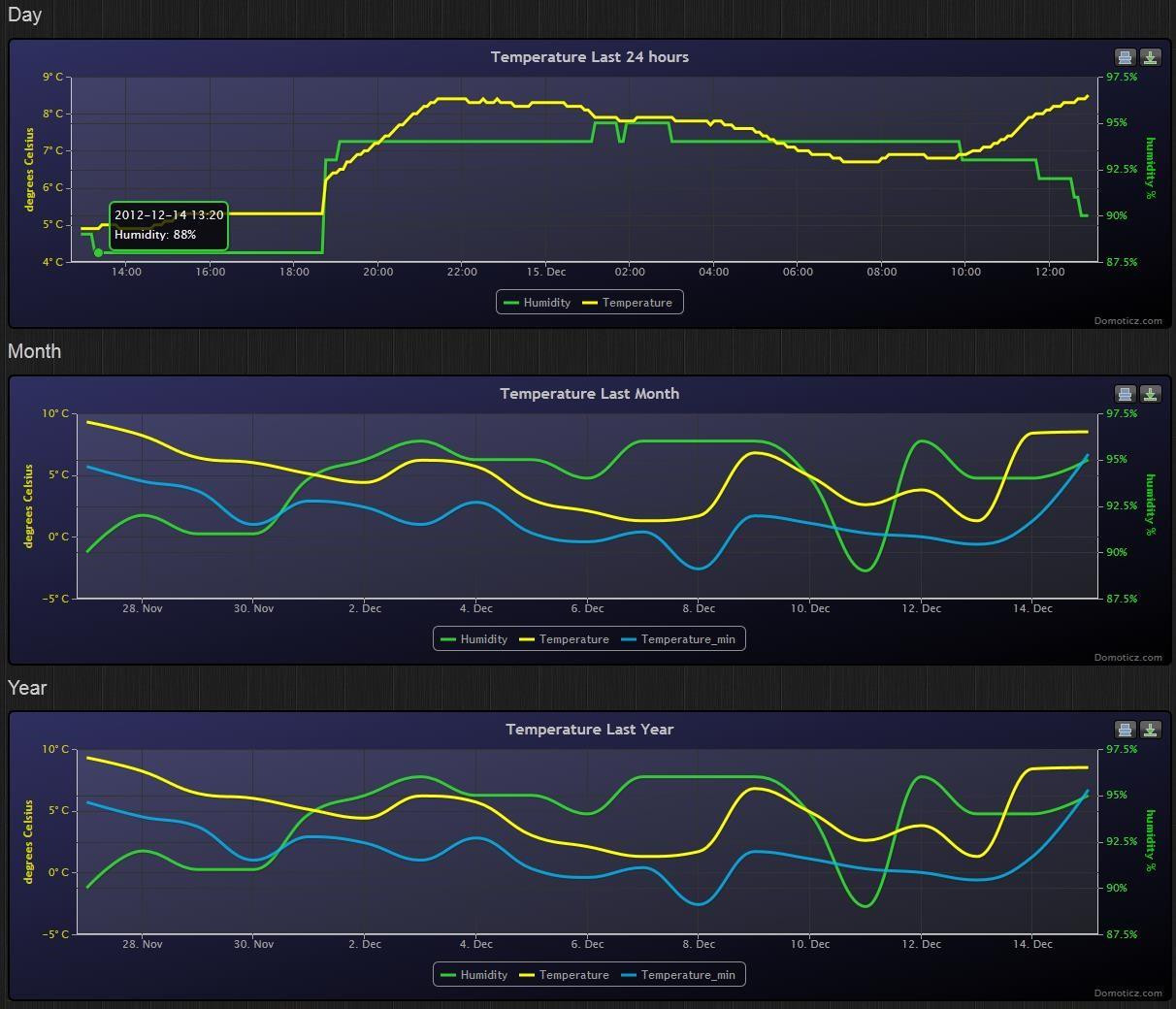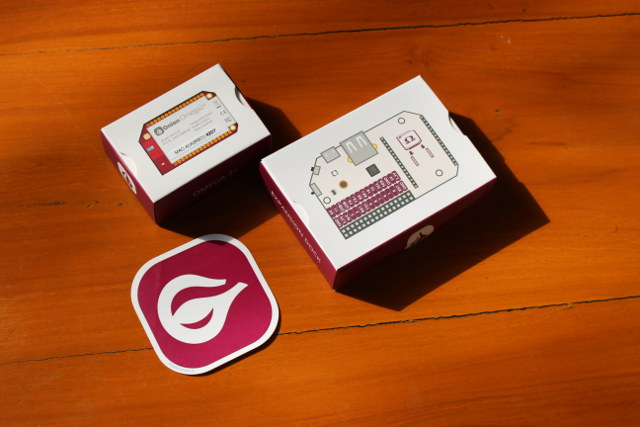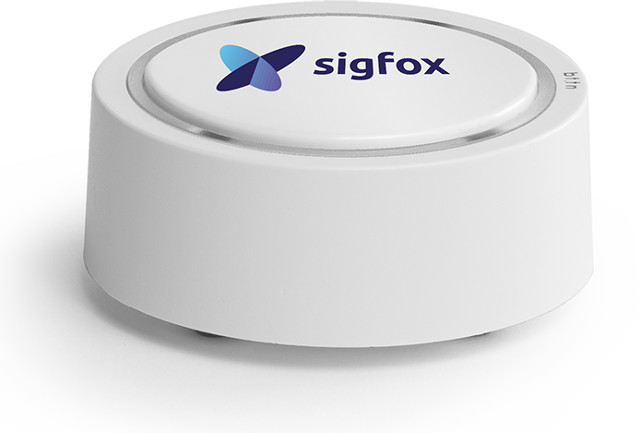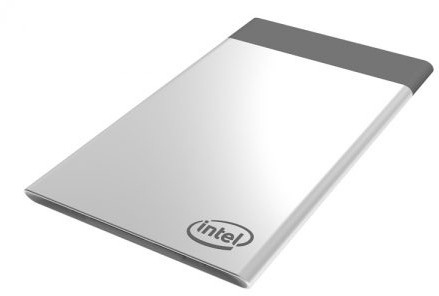Inforce Computing launched 6309 micro single board computer powered by Snapdragon 410 processor, and compatible with 96Boards Dragon 410c board, a little over a year ago. The company has sent a newsletter promoting the launch of cost-down version with long term support equipped with Snapdragon 410E processor, and named Inforce 6309L. Comparison table between Inforce 6309L board and DragonBoard 410C provided by the company: Inforce 6309L Dragonboard 410C SoC Qualcomm Snapdragon 410E quad core ARM Cortex A53 processor with Adreno 306 GPU Dimensions 54mm x 85mm Memory Storage 1GB LPDDR3 8GB eMMC Micro SD Connectivity Wi-Fi/BT/GPS Video 1080p HD video 720p HEVC playback Camera Dual cameras 13MP on MIPI-CSI Interfaces Micro USB, USB, Micro HDMI, MIPI-CSI, expansion header Micro USB, USB, HDMI, expansion header Operating System Android Lollipop 5.1 Linux (Debian) Win10 IoT core Both boards are pretty similar, except Inforce 6901L replaced the HDMI port with a mico HDMI […]
How to use Sonoff POW with ESPurna Firmware and Domoticz Home Automation System
Sonoff POW is an ESP8266 based wireless switch with a power meter that comes pre-loaded with a closed-source firmware that works with eWelink app for Android or iOS by default. But we’ve also seen Sonoff POW, and other Sonoff wireless switches from the same family, can be flash with open source firmware supporting MQTT (Message Queuing Telemetry Transport) lightweight messaging protocol such as ESPurna, and I initially sent data from Sonoff POW to ThingSpeak via an MQTT broker (mosquitto) to draw some pretty charts. I did that with the switch connected to a lightbulb, but I’ve since installed Sonoff POW in my office to measure the room’s power consumption minus the ceiling light and aircon as shown below. Sonoff cable mechanism is really a pain for hard copper wires, as they are hard to push inside the mechanism, and something come out. I finally managed by it took longer than […]
RTL8710 Ameba Arduino Development Board and Ameba Arduino v2.0.0 SDK Released
We’ve already seen a NodeMCU lookalike board called RTLDuino based on Realtek RTL8710AF ARM Cortex M3 WiSoC earlier this month, that can be programmed with a community supported Arduino port also called rtlduino via a JLink SWD debugger, but now Realtek has just launched Ameba RTL8710 Arduino board, and released Ameba Arduino v2.0.0 SDK which brings official Arduino support to RTL8710AF platforms. There appears to be two versions of the development kit: RTLDUINO_PRO_V1.0 and REALTEK-AMEBA_RTL8710_V2.0, but based on the user manual they seem to be identical, and as you can see from the above picture, it includes a baseboard and the aforementioned RTLDuino board. RTL8710 Ameba Arduino HDK key features: SoC – Realtek RTL8710AF ARM Cortex-M3 MCU @ 83 MHz with 802.11 b/g/n WiFi, hardware SSL engine connected to the baseboard via: RTLDuino board through female header B&T RTL-00 module soldered on module footprint USB – 2x micro USB ports, […]
$30 BakeBit Starter Kit Adds Sensors & Buttons to Your NanoPi NEO & NEO Air Boards
FriendlyElec (previously FriendlyARM) launched NanoPi NEO and then NanoPi NEO Air board as respectively Ethernet and WiFi/Bluetooth connected boards for IoT applications. But so far, there was no ecosystem around the board, you had to use your own sensor modules, and write your own software to control them. This has now changed with the launch a BakeBit Starter Kit with twelve sensor modules, a NanoHat Hub add-on board designed for NanoPi boards, as well as BakeBit Library to control the hardware. The NanoHat Hub plugs into the two NanoPi NEO headers and provide 12 headers with 3x I2C interfaces, 3x analog interfaces, 2x UART interfaces, and 4x digital interfaces among which D3 and D5 support PWM, compatible with SeeedStudio Grove modules. You then have a choice of 12 modules to connect to the NanoHat Hub: OLED Module Ultrasonic Module Green LED Module Red LED Module LED Bar Module Rotary Angle […]
How to Install Domoticz Home Automation System in NanoPi NEO and Other ARM Linux Boards
I’ve recently started experimenting with IoT projects, and the first hurdle is to select the hardware and software for your projects are there are simply so many options. For the hardware your first have to choose the communication protocols for your sensors and actuators, and if you are going to go with WiFi, ESP8266 is the obvious solution, used together with your favorite low cost Linux development board such as Raspberry Pi or Orange Pi to run some IoT server software locally or leveraging the cloud. But the most difficult & confusing part for me was to select the server software / cloud services as there are just so many options. I prefer having a local server than something running only in the cloud, as my Internet goes a few hours a month, so I started with a solution combining ThingSpeak with MQTT gathering data from Sonoff power switches running […]
Getting Started with Onion Omega2+ LEDE WiFi IoT Board and Expansion Dock
Onion Omega2 LEDE (OpenWrt fork) WiFi board is powered by Mediatek MT7688 MIPS SoC, targets IoT projects, and sells for as low as $5. There are actually two versions: Omega2 with 64MB RAM, 16MB flash, and Omega2+ with 128MB RAM, 32MB flash and a micro SD slot. Onion sent me the latter for review, together with an expansion dock that allows powering up the board though USB , and adds a USB host port, an RGB LED, buttons, and access to GPIO via a female header. In this quick start guide, I’ll start by taking some unboxing pictures, and then report my experience following the documentation to configure the board, blink the RGB LED, and control a LED on a breadboard using a GPIO from the header. Onion Omega2+ Unboxing I received the two boards in their respective package, and which are both stored in anti-static bags. Let’s check Onion […]
Bttn is a Sigfox Connected IoT Button Going for $2 a month
The Button Corporation, a company specializing in… buttons as you may have guess, has introduced a new version of their bttn connected button with Sigfox connectivity in the US. It works a little like Amazon Dash, but mostly targets businesses, offers more features, and works anywhere with a Sigfox network. bttn & bttn mini specifications: Button functions – Short press, long press and “not pressed” LED feedback – Green (positive), red (negative) and yellow (wait) Connectivity – Mobile data (2G GPRS), SIGFOX (868 MHz ETSI / 915MHz for US), or Wi-Fi (2.4 GHz 802.11b/g/n) USB – 1x micro USB port for charging Power Supply bttn mini – Rechargeable Li-Po battery bttn – 4 x AA alkaline batteries Dimensions – bttn mini: 69mm Ø x 40 mm; bttn: 100 mm Ø x 73 mm Weight – bttn mini: 90 grams; bttn: 190 grams bttn devices send data to bt.tn cloud server, […]
Intel Compute Card is a Business Card Sized Platform for Modular & Upgradeable Computers & Devices
Intel has just introduced their Compute Card, the name likely originating from their Compute Stick & Module series, integrating all main components you’d find in a computer such as a processor, memory, storage, and wireless connectivity into an standardized ultra thin business card sized module that can be used in compatible devices from smart kiosks to security cameras and IoT gateways, as well as computers and laptops. Intel has some demos at CES 2017, but has not announced any specific models yet. We still have some of the key features for the Compute Cards: Processor up to 7th Gen Intel Core, memory, storage and wireless connectivity are all included in the card Intel Compute Card-based device will provide the power, cooling and the optimized user I/O for that particularly solution Connection to devices will be done via an Intel Compute Card slot with a new standard connector (USB-C plus extension) […]


